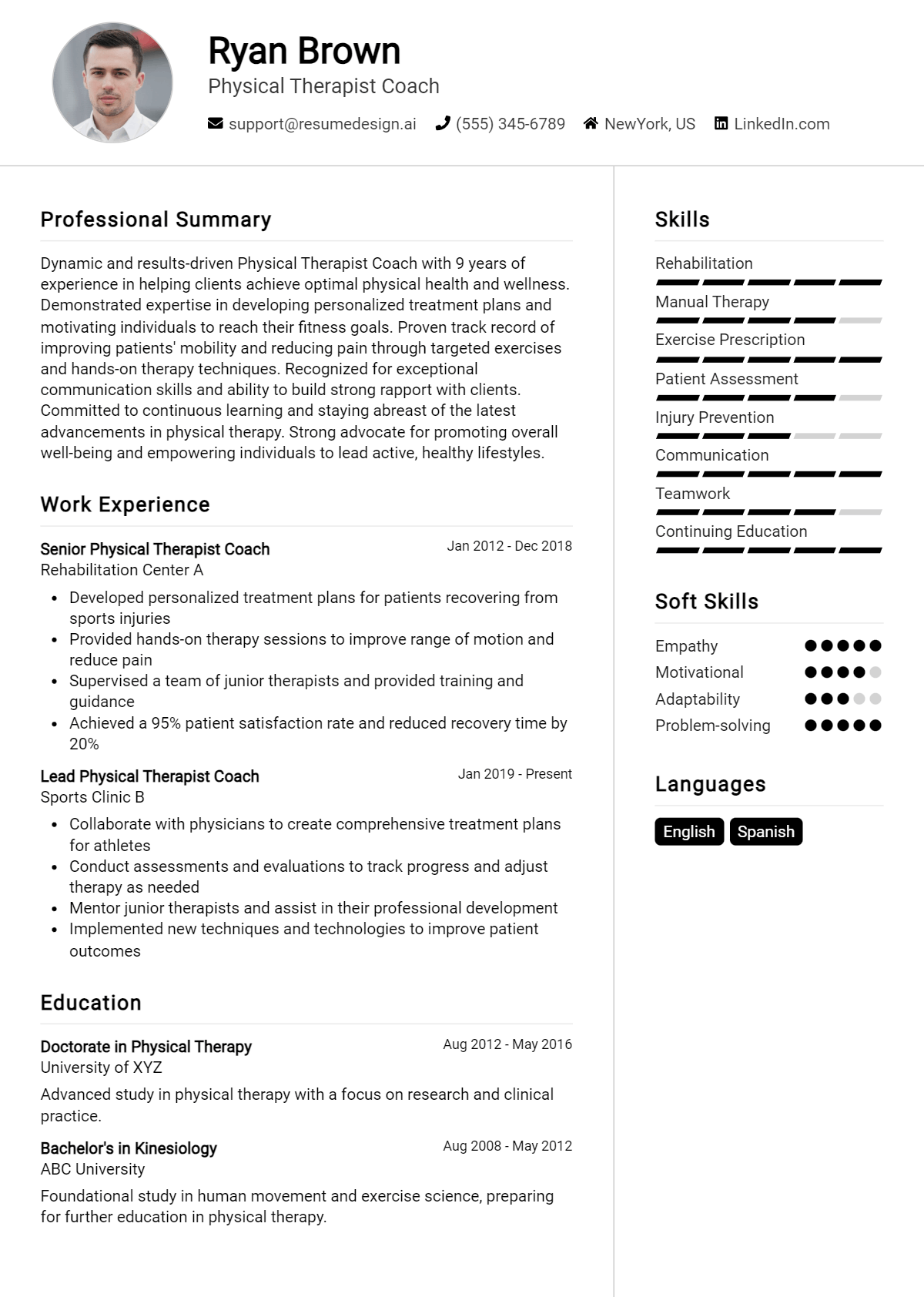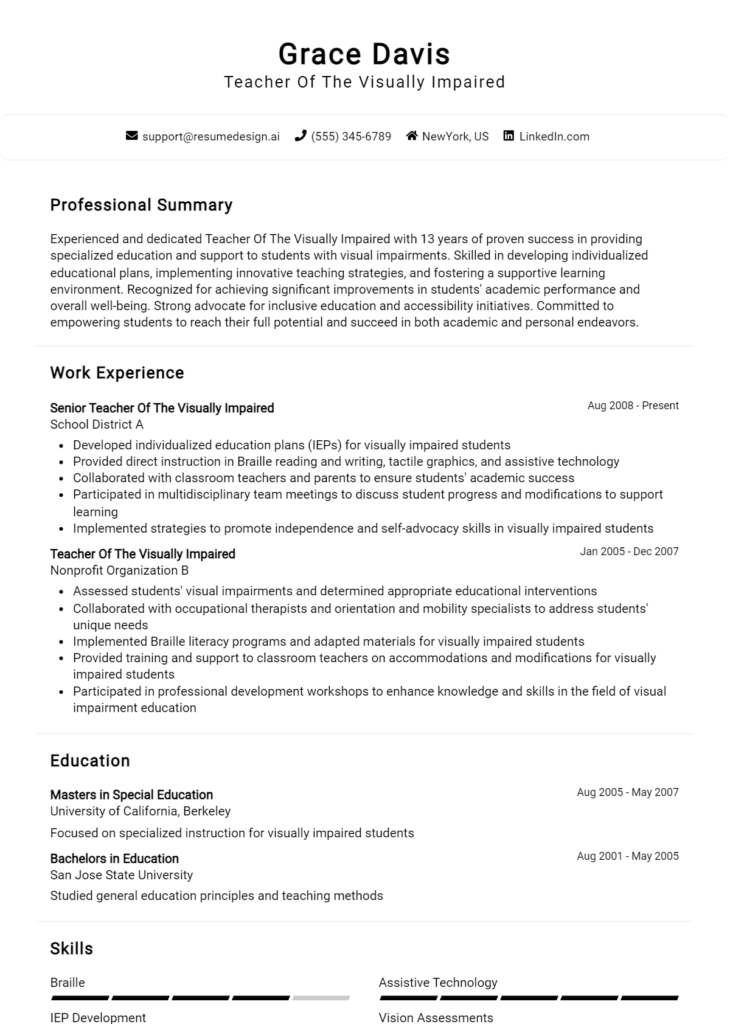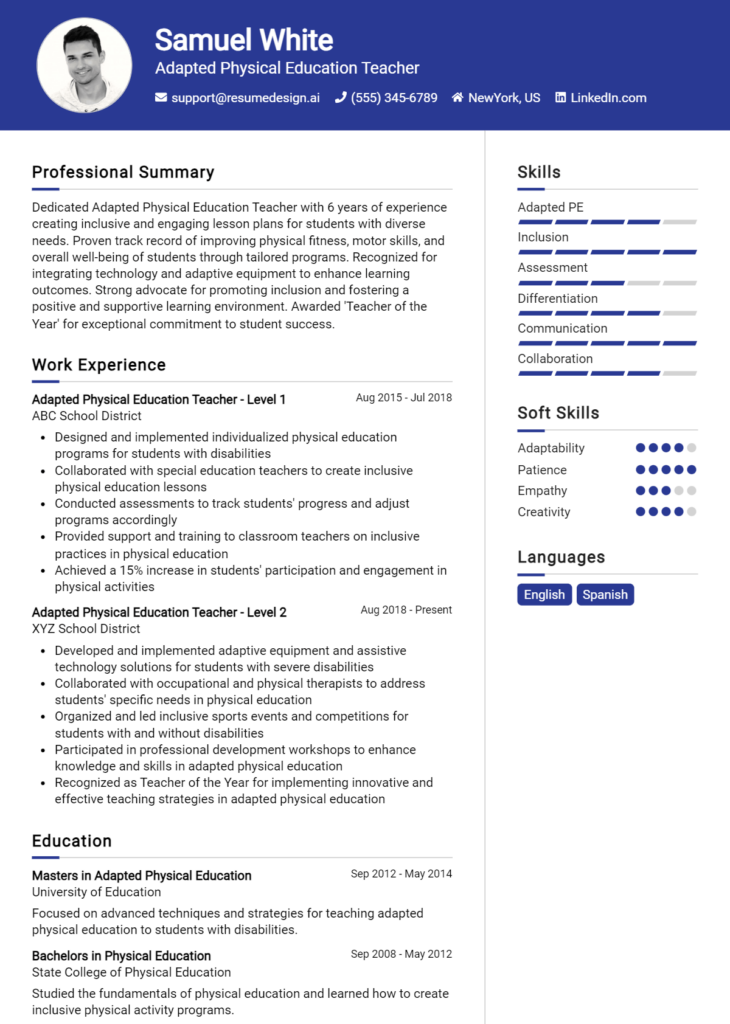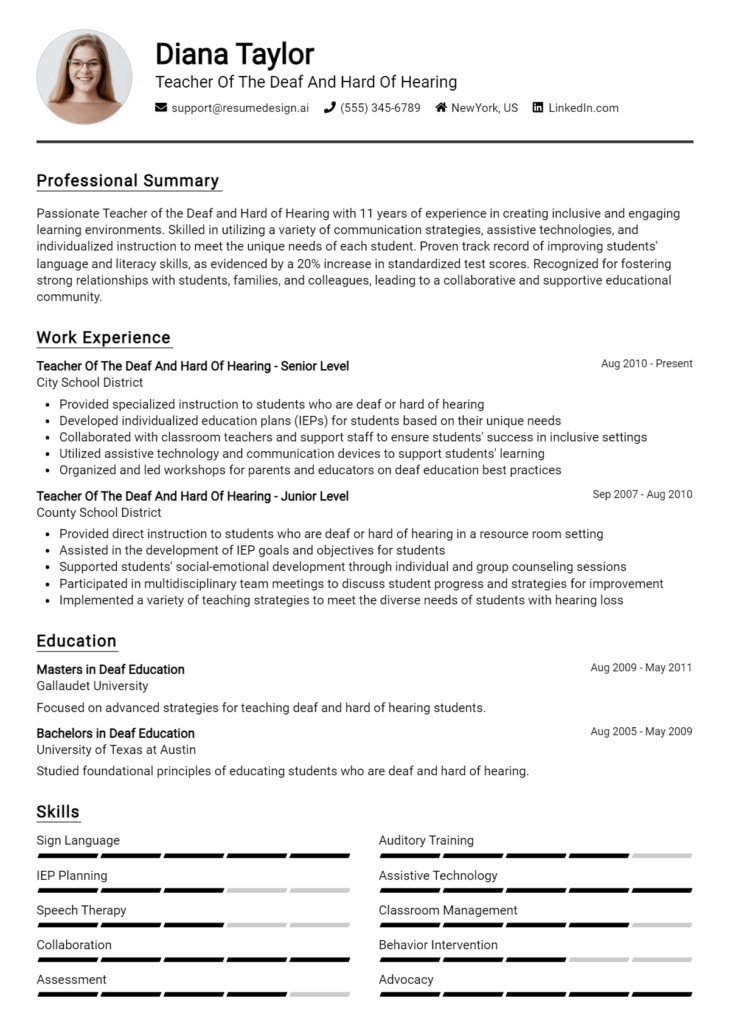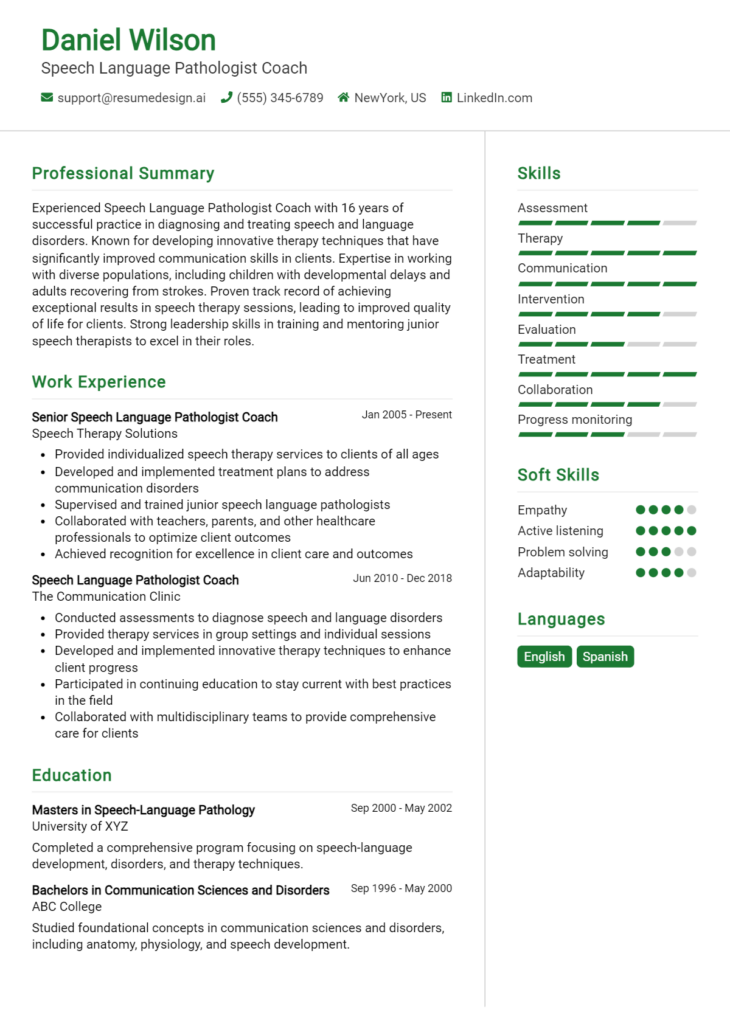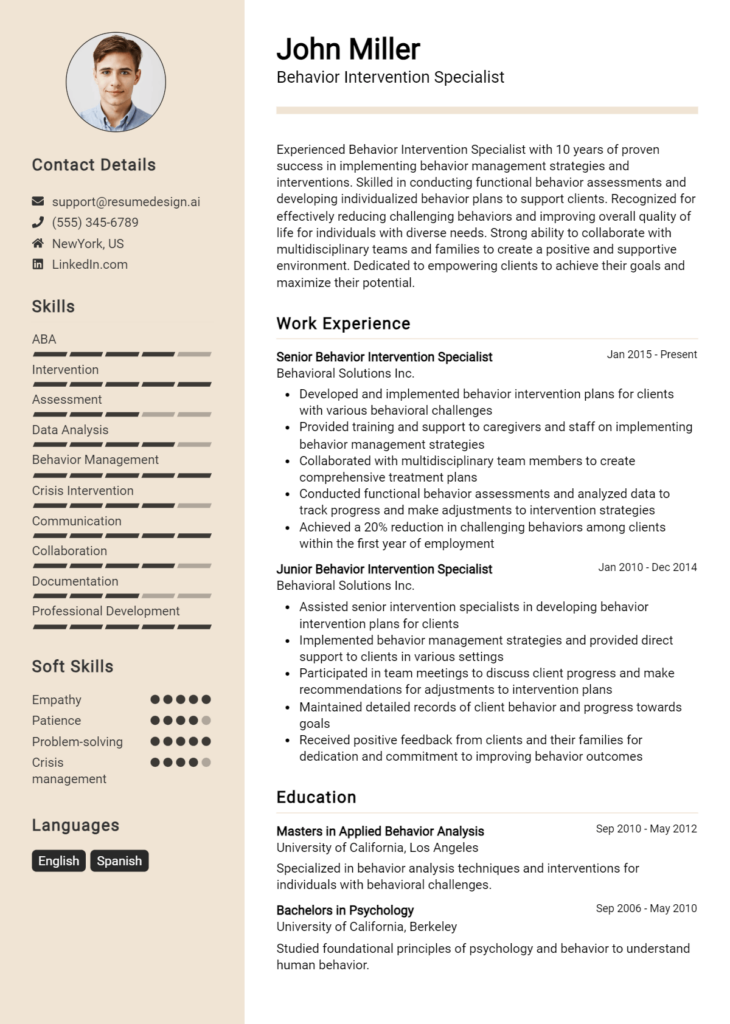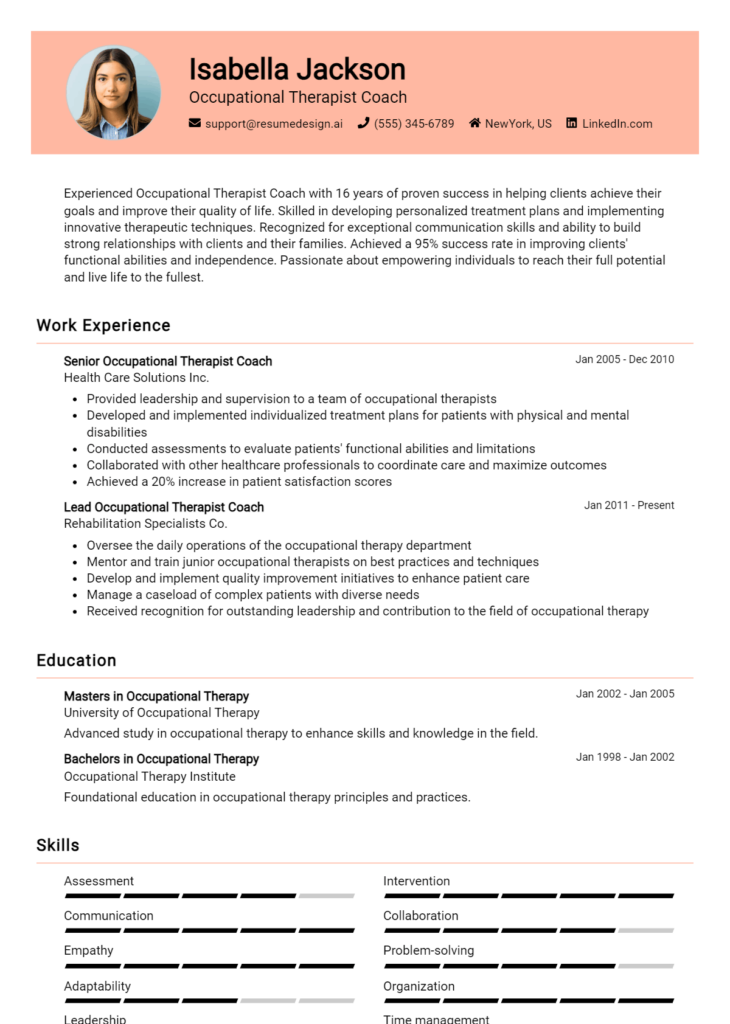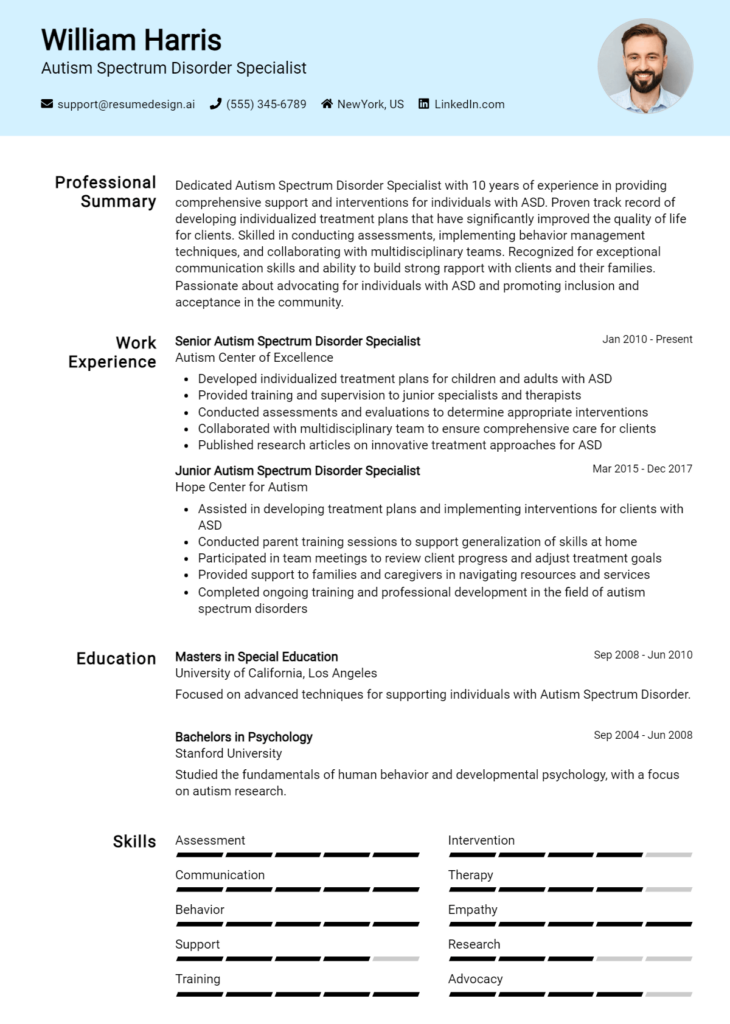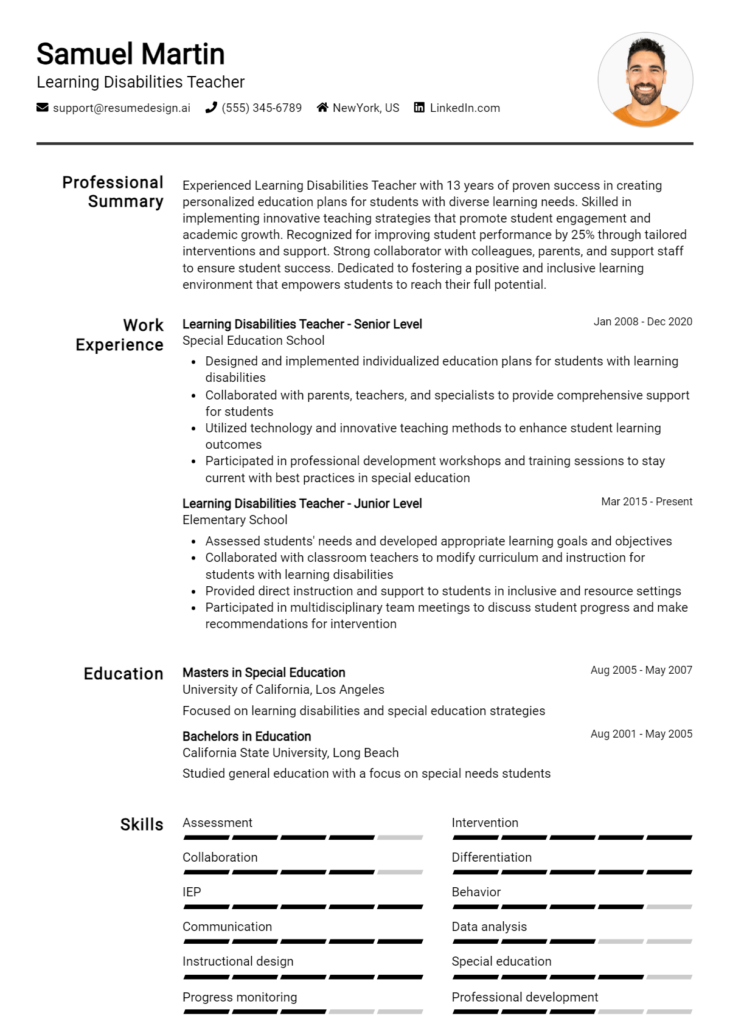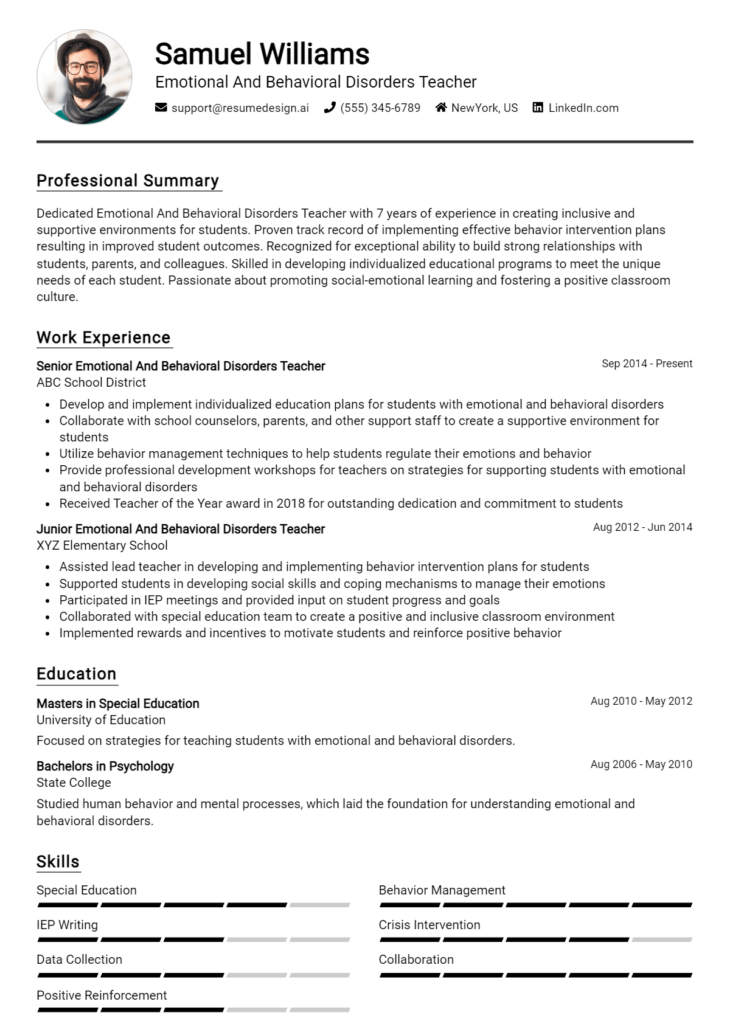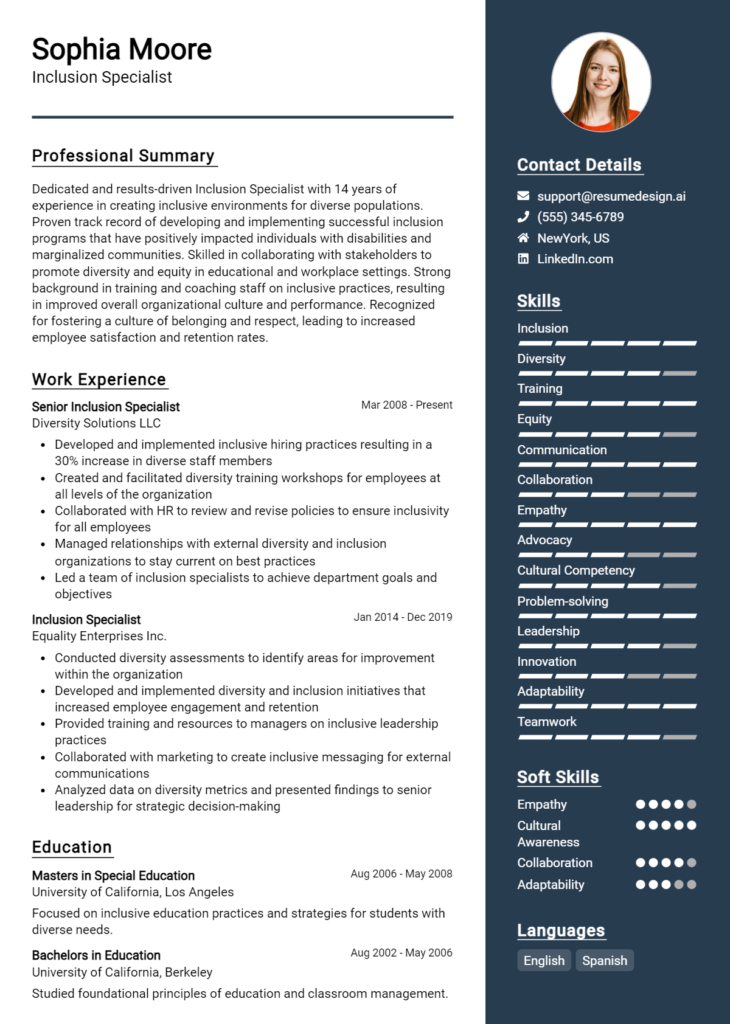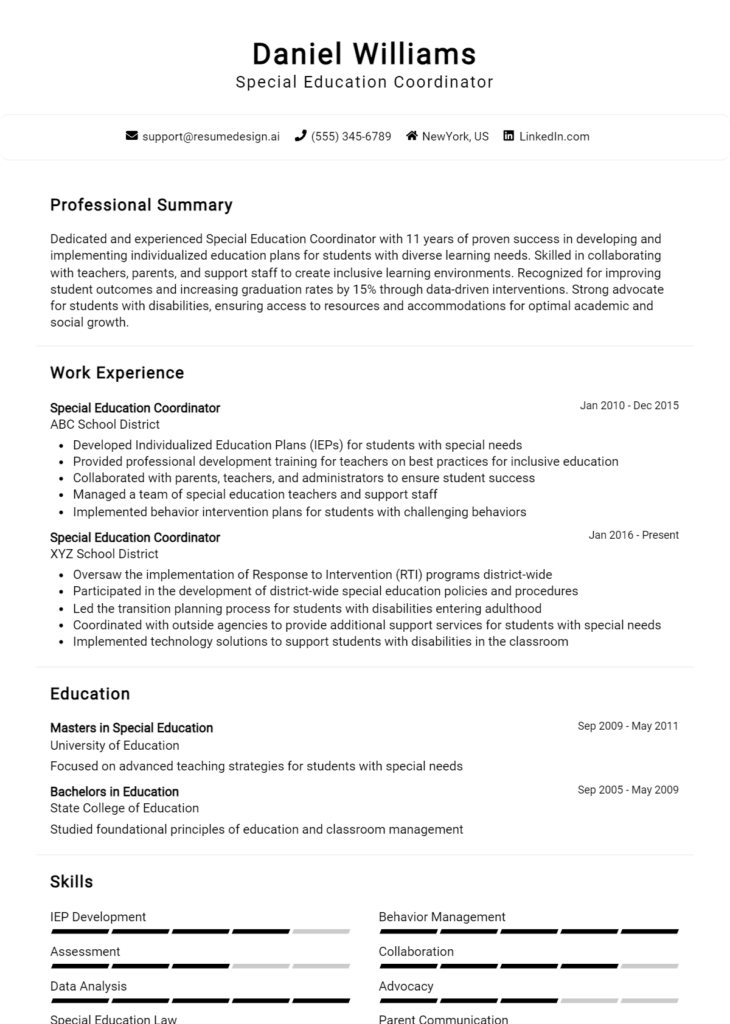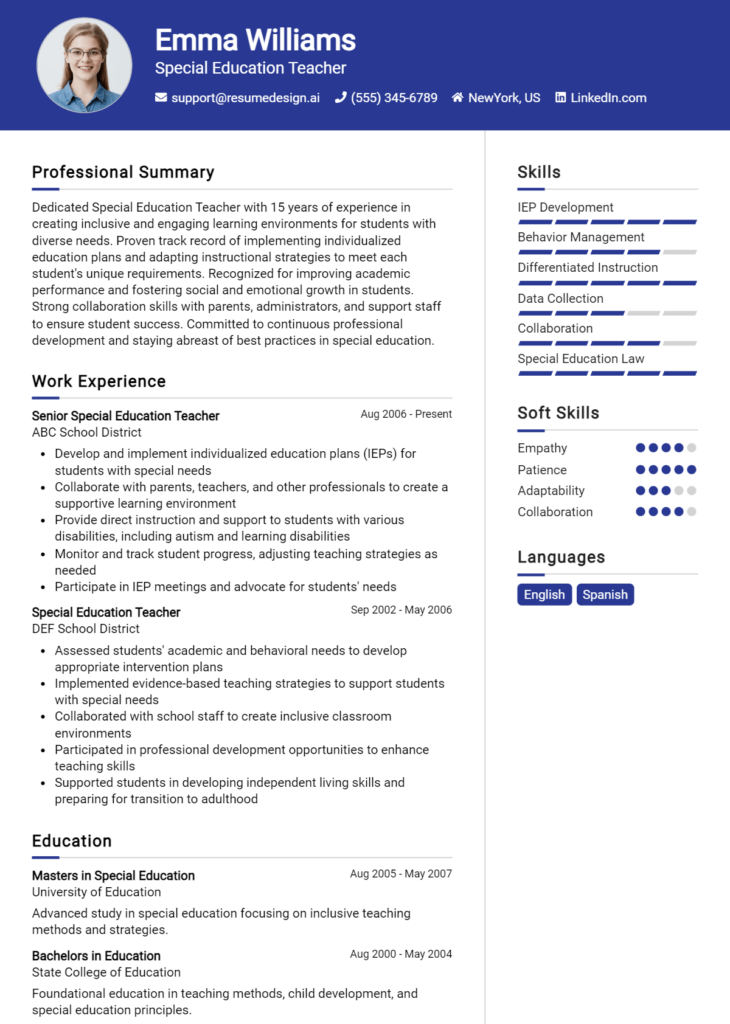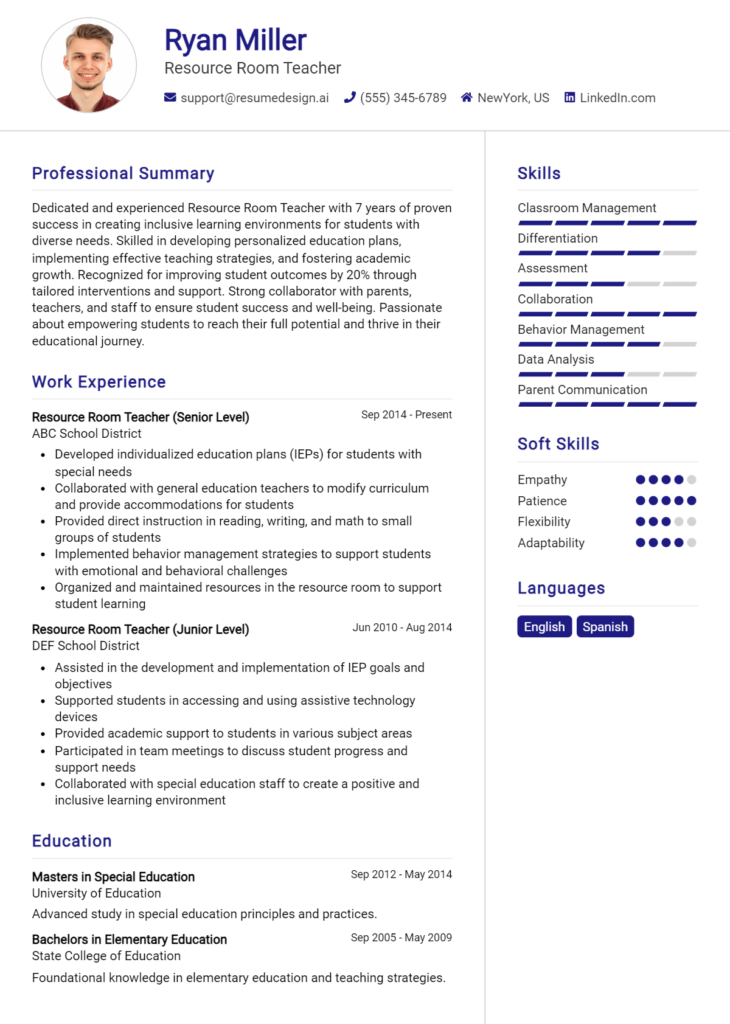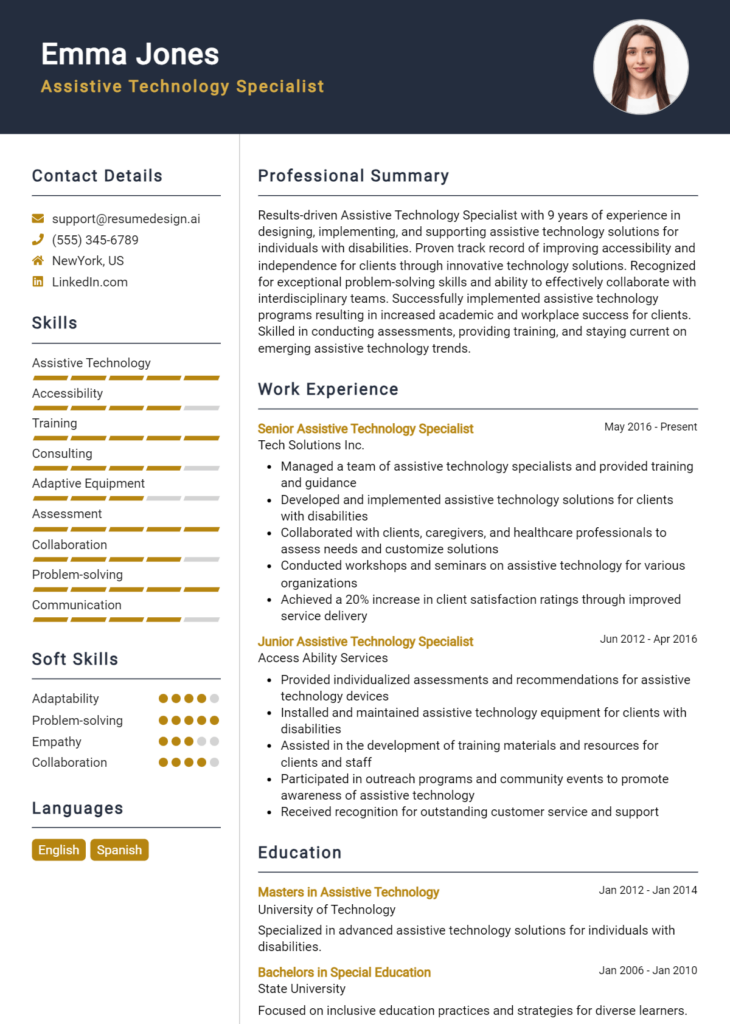Physical Therapist Coach Core Responsibilities
A Physical Therapist Coach plays a pivotal role in enhancing patient care and rehabilitation outcomes by collaborating with various departments, such as nursing, occupational therapy, and administration. This position demands strong technical knowledge of physical therapy practices, operational efficiency to streamline processes, and robust problem-solving skills to address patient-specific challenges. These abilities not only help in achieving organizational goals but also foster a holistic approach to patient management. A well-structured resume effectively showcases these qualifications, enhancing the candidate's appeal to prospective employers.
Common Responsibilities Listed on Physical Therapist Coach Resume
- Develop and implement personalized rehabilitation programs for patients.
- Conduct assessments to evaluate patient progress and adjust treatment plans accordingly.
- Collaborate with multidisciplinary teams to optimize patient care.
- Provide education and training to patients on injury prevention and recovery techniques.
- Monitor and document patient outcomes and program effectiveness.
- Lead workshops and seminars to promote physical wellness in the community.
- Assist in the training and development of junior staff and interns.
- Ensure compliance with healthcare regulations and standards.
- Utilize evidence-based practices to enhance treatment methodologies.
- Manage scheduling and administrative tasks related to patient care.
- Engage in ongoing professional development to stay current with industry trends.
- Facilitate communication between patients and healthcare providers to ensure cohesive care.
High-Level Resume Tips for Physical Therapist Coach Professionals
In the competitive field of physical therapy coaching, a well-crafted resume is not just a document; it is a vital tool that can make or break your chances of landing that perfect job. Often, your resume is the first impression you make on a potential employer, and it needs to effectively showcase your unique skills, experiences, and achievements. A strong resume will not only highlight your qualifications but also reflect your passion for helping clients achieve their health and fitness goals. This guide provides practical and actionable resume tips specifically tailored for Physical Therapist Coach professionals, ensuring that you stand out in a crowded job market.
Top Resume Tips for Physical Therapist Coach Professionals
- Tailor your resume to each job description, emphasizing the specific skills and experiences that align with the role.
- Showcase relevant experience by detailing your previous roles, responsibilities, and how they relate to physical therapy coaching.
- Quantify your achievements wherever possible, using metrics to demonstrate the impact of your work (e.g., percentage of client improvement).
- Highlight industry-specific skills, such as knowledge of rehabilitation techniques, patient assessment, and exercise programming.
- Include certifications and licenses that are pertinent to the physical therapy coaching field to validate your qualifications.
- Utilize action verbs to convey your contributions and accomplishments dynamically and engagingly.
- Incorporate keywords from the job posting to pass through Applicant Tracking Systems (ATS) that employers may use.
- Keep your resume concise and focused, ideally one page, to ensure it is easily readable and impactful.
- Add a professional summary at the top that encapsulates your experience and coaching philosophy in a few compelling sentences.
- Consider including a section on professional development to demonstrate your commitment to continuous learning in the field.
By implementing these tips, you can significantly enhance your resume's effectiveness, thereby increasing your chances of securing a position in the Physical Therapist Coach field. A focused and well-structured resume will not only capture the attention of hiring managers but also reflect your dedication and professionalism, setting you on the path to a rewarding career.
Why Resume Headlines & Titles are Important for Physical Therapist Coach
In the competitive field of physical therapy coaching, a well-crafted resume headline or title serves as a critical first impression for potential employers. It acts as a beacon, instantly capturing the attention of hiring managers and summarizing a candidate’s key qualifications in a powerful, succinct phrase. A strong headline not only highlights the applicant's relevant skills and experience but also aligns closely with the specific requirements of the job being applied for. By ensuring that this element of the resume is concise and directly related to the role, candidates can effectively set themselves apart in a crowded job market.
Best Practices for Crafting Resume Headlines for Physical Therapist Coach
- Keep it concise: Aim for one impactful phrase that encapsulates your expertise.
- Be role-specific: Use terminology and keywords relevant to the physical therapy coaching field.
- Highlight key strengths: Focus on your most impressive skills and accomplishments.
- Use active language: Employ strong action verbs to convey confidence and capability.
- Include relevant certifications: Mention any specific qualifications that enhance your candidacy.
- Tailor for each application: Customize your headline to match the job description and requirements.
- Avoid jargon: Use clear and straightforward language that can be easily understood by hiring managers.
- Reflect your professional brand: Ensure your headline aligns with your overall career narrative and goals.
Example Resume Headlines for Physical Therapist Coach
Strong Resume Headlines
Dynamic Physical Therapist Coach with 10+ Years of Experience in Rehabilitation and Sports Performance
Certified Physical Therapist Coach Specializing in Athlete Injury Prevention and Recovery Strategies
Results-Driven Physical Therapist Coach Committed to Enhancing Patient Mobility and Quality of Life
Weak Resume Headlines
Looking for a Job in Physical Therapy
Physical Therapist with some Experience
The strong headlines are effective because they are specific, showcasing key skills and experiences that immediately resonate with the job requirements. They convey a sense of professionalism and purpose that helps candidates stand out. In contrast, the weak headlines lack detail and clarity, making them forgettable and less impactful. They fail to demonstrate a candidate's unique value proposition, which is crucial in a competitive job landscape.
Writing an Exceptional Physical Therapist Coach Resume Summary
A resume summary is a crucial component for a Physical Therapist Coach as it serves as the first impression a hiring manager receives of a candidate's qualifications. A well-crafted summary quickly captures attention by succinctly highlighting key skills, relevant experience, and significant accomplishments tailored to the specific job at hand. It should be concise yet impactful, effectively setting the stage for the rest of the resume and encouraging the reader to delve deeper into the candidate's qualifications.
Best Practices for Writing a Physical Therapist Coach Resume Summary
- Quantify Achievements: Use numbers and metrics to showcase your impact, such as the percentage of patient recovery rates or the number of clients coached.
- Focus on Relevant Skills: Highlight skills that directly relate to the Physical Therapist Coach role, such as patient assessment, rehabilitation techniques, and motivational coaching.
- Tailor for the Job Description: Customize your summary to reflect the specific requirements and keywords found in the job posting.
- Be Concise: Keep your summary brief, ideally within 3-5 sentences, to ensure clarity and maintain the reader's attention.
- Showcase Professional Experience: Mention the number of years of experience and relevant settings (e.g., hospitals, clinics, or sports facilities) to demonstrate expertise.
- Highlight Certifications: Include any relevant certifications or special training that can set you apart from other candidates.
- Emphasize Interpersonal Skills: As coaching requires strong communication and empathy, emphasize your ability to connect with clients and foster a supportive environment.
- Utilize Action Verbs: Start sentences with strong action verbs to convey confidence and proactivity in your role.
Example Physical Therapist Coach Resume Summaries
Strong Resume Summaries
Dedicated Physical Therapist Coach with over 7 years of experience in developing personalized rehabilitation programs, achieving a 95% patient satisfaction rate and a 30% improvement in recovery time for athletes.
Results-driven coach with a proven track record of enhancing patient mobility and reducing pain through innovative therapy techniques, leading to a 40% increase in patient retention in a clinical setting.
Certified Physical Therapist Coach skilled in motivational interviewing and evidence-based practices, having successfully guided over 150 clients to achieve their fitness goals and improve their overall well-being.
Weak Resume Summaries
Physical Therapist Coach with some experience in the field, looking for a job to help people.
Experienced coach who works with clients on their rehabilitation, but has not achieved any specific results or metrics.
The examples provided illustrate the differences between strong and weak resume summaries. Strong summaries effectively quantify achievements and showcase specific skills relevant to the Physical Therapist Coach role, making them compelling and tailored to the job description. In contrast, weak summaries lack detail, specificity, and measurable outcomes, making them less impactful and memorable to hiring managers.
Work Experience Section for Physical Therapist Coach Resume
The work experience section is a critical component of a Physical Therapist Coach's resume, as it serves to illustrate the candidate's technical skills, leadership abilities, and commitment to delivering high-quality outcomes in patient care and team management. This section not only highlights the candidate's professional journey but also quantifies their achievements, showcasing how they have effectively aligned their experience with industry standards. By providing specific examples of successful interventions, team collaborations, and measurable improvements in patient outcomes, candidates can demonstrate their value and readiness for the challenges of a Physical Therapist Coach role.
Best Practices for Physical Therapist Coach Work Experience
- Focus on relevant technical skills and certifications that enhance your coaching capabilities.
- Quantify achievements with specific metrics, such as percentage improvements in patient recovery times.
- Highlight leadership roles in team settings and describe how you foster collaboration among peers.
- Use action verbs to convey your proactive approach in various situations.
- Tailor your experience to align with industry standards and the specific job description.
- Include examples of successful program implementations or training initiatives you have led.
- Showcase your ability to adapt techniques based on patient needs and outcomes.
- Document any contributions to research or advancements in physical therapy practices.
Example Work Experiences for Physical Therapist Coach
Strong Experiences
- Led a team of 10 physical therapists, resulting in a 30% increase in patient satisfaction scores through improved rehabilitation techniques.
- Developed and implemented a training program for new hires that decreased onboarding time by 25% and improved team efficiency.
- Collaborated with a multidisciplinary team to design a patient care protocol that reduced recovery times by an average of 15% for post-surgical patients.
- Managed data analysis projects that identified trends in patient outcomes, leading to a 20% improvement in treatment efficacy over two years.
Weak Experiences
- Worked with patients and helped them with their rehabilitation.
- Assisted in team meetings and contributed to discussions.
- Participated in various projects related to physical therapy.
- Coached staff on techniques without measurable outcomes.
The examples listed as strong experiences are considered effective because they provide specific quantifiable outcomes, demonstrate leadership in team settings, and illustrate collaboration with other professionals, clearly showcasing the candidate's impact in previous roles. In contrast, the weak experiences lack detail and measurable achievements, making them less compelling and failing to highlight the candidate's true capabilities and contributions to their field.
Education and Certifications Section for Physical Therapist Coach Resume
The education and certifications section of a Physical Therapist Coach resume plays a crucial role in showcasing the candidate's academic achievements and professional qualifications. This section not only highlights the foundational knowledge acquired through formal education but also emphasizes industry-relevant certifications and ongoing learning efforts that are vital for staying current in the ever-evolving field of physical therapy. By providing details on relevant coursework, specialized training, and recognized credentials, candidates can significantly enhance their credibility and demonstrate their alignment with the job role, making them more attractive to potential employers.
Best Practices for Physical Therapist Coach Education and Certifications
- Include advanced degrees such as a Doctor of Physical Therapy (DPT) or a Master’s in Physical Therapy.
- List relevant certifications like the Certified Strength and Conditioning Specialist (CSCS) or Functional Movement Screen (FMS).
- Highlight any specialized training in areas such as sports rehab, geriatrics, or pediatrics.
- Provide details about relevant coursework that aligns with the responsibilities of a Physical Therapist Coach.
- Ensure that all certifications are up-to-date and include their expiration dates if applicable.
- Use clear and concise language to describe educational achievements and certifications.
- Consider including memberships in professional organizations such as the American Physical Therapy Association (APTA).
- Prioritize the most relevant and prestigious qualifications to draw attention immediately.
Example Education and Certifications for Physical Therapist Coach
Strong Examples
- Doctor of Physical Therapy (DPT), University of California, 2020
- Certified Strength and Conditioning Specialist (CSCS), National Strength and Conditioning Association, 2021
- Advanced Orthopedic Manual Therapy Certification, 2022
- Specialized coursework in Sports Medicine and Rehabilitation, University of California, 2019
Weak Examples
- Bachelor of Arts in Psychology, 2015 (not directly relevant)
- Certification in Basic First Aid, 2018 (general and outdated for a specialized role)
- High School Diploma, 2012 (not sufficient for the position)
- CPR Certification from a non-recognized provider, 2020 (lacks credibility)
The strong examples are considered effective as they showcase advanced degrees and certifications that are directly relevant to the role of a Physical Therapist Coach, indicating a solid foundation in both education and professional qualifications. In contrast, the weak examples highlight qualifications that are either outdated, irrelevant, or lack specificity and recognition in the field. This distinction emphasizes the importance of selecting educational and certification credentials that align closely with the demands and expectations of the job role.
Top Skills & Keywords for Physical Therapist Coach Resume
A well-crafted resume is a vital tool for any Physical Therapist Coach aiming to stand out in a competitive job market. Highlighting the right skills can make a significant difference in capturing the attention of hiring managers. Both hard and soft skills play crucial roles in this profession, as they reflect not only the technical abilities required to perform physical therapy but also the interpersonal qualities needed to effectively coach and motivate clients. A strong balance of these skills on your resume will demonstrate your comprehensive expertise and your ability to foster a supportive environment for recovery and improvement.
Top Hard & Soft Skills for Physical Therapist Coach
Soft Skills
- Empathy
- Communication
- Active Listening
- Patience
- Problem-Solving
- Motivation
- Adaptability
- Teamwork
- Conflict Resolution
- Time Management
Hard Skills
- Knowledge of Anatomy and Physiology
- Rehabilitation Techniques
- Patient Assessment
- Exercise Prescription
- Manual Therapy Skills
- Treatment Planning
- Use of Therapeutic Equipment
- Record Keeping and Documentation
- Knowledge of Insurance Processes
- CPR and First Aid Certification
For a more comprehensive view of how to effectively showcase your skills and work experience in your resume, consider integrating these essential attributes that align with your professional journey in the field of physical therapy coaching.
Stand Out with a Winning Physical Therapist Coach Cover Letter
Dear [Hiring Manager's Name],
I am writing to express my interest in the Physical Therapist Coach position at [Company Name]. With a robust background in physical therapy and a passion for empowering individuals to achieve their physical goals, I am excited about the opportunity to contribute to your team. My experience in developing personalized rehabilitation programs and coaching clients through their recovery journeys has equipped me with the skills necessary to excel in this role.
Throughout my career, I have worked with diverse populations, including athletes, post-operative patients, and individuals recovering from chronic conditions. My approach focuses not only on physical recovery but also on educating clients about their bodies and fostering a positive mindset. By utilizing evidence-based techniques and motivating strategies, I have successfully guided clients toward improved mobility, strength, and overall wellness. I am particularly drawn to [Company Name]’s commitment to holistic health and its innovative approach to physical therapy, and I believe my skills align perfectly with your mission.
In my previous role at [Previous Company Name], I implemented a coaching program that increased patient engagement by 30% and significantly improved outcomes in recovery times. I thrive in collaborative environments and pride myself on my ability to communicate effectively with both clients and multidisciplinary teams. I am eager to bring my expertise in physical therapy coaching to [Company Name] and contribute to your reputation as a leader in the field.
Thank you for considering my application. I look forward to the possibility of discussing how my background, skills, and enthusiasm for physical therapy coaching can benefit the clients at [Company Name]. I am excited about the opportunity to inspire and support individuals on their journey to better health and mobility.
Sincerely,
[Your Name]
[Your Contact Information]
Common Mistakes to Avoid in a Physical Therapist Coach Resume
When crafting a resume as a Physical Therapist Coach, it’s crucial to present your qualifications and experience effectively. Many applicants make common mistakes that can hinder their chances of landing an interview. By avoiding these pitfalls, you can create a resume that highlights your skills and expertise in the field. Here are some frequent errors to watch out for:
Vague Job Descriptions: Using general terms instead of specific achievements can dilute the impact of your experience. Clearly outline your responsibilities and accomplishments in previous roles.
Neglecting Certifications: Failing to prominently display relevant certifications and licenses can weaken your resume. Ensure that your credentials are easily visible and up-to-date.
Inconsistent Formatting: A resume that lacks a uniform format can appear unprofessional. Use consistent fonts, sizes, and bullet points to enhance readability.
Using Jargon or Technical Language: While some technical language may be necessary, overloading your resume with jargon can alienate readers. Aim for clarity and simplicity to ensure your message is understood.
Ignoring Keywords: Many employers use applicant tracking systems (ATS) to filter resumes. Not including relevant keywords from the job description may result in your resume being overlooked.
Excessive Length: A resume that is too long can overwhelm potential employers. Aim for a concise format, ideally one page, that highlights your most relevant experience.
Lack of Quantifiable Achievements: Failing to include measurable outcomes can make your contributions seem less impactful. Use numbers to demonstrate your success, such as patient improvement rates or program participation statistics.
Skipping Tailoring for Each Application: Sending out a generic resume can hurt your chances. Tailor your resume for each job application to reflect how your skills align with the specific role and organization.
Conclusion
As a Physical Therapist Coach, you play a crucial role in guiding individuals towards recovery and improved mobility. This article has explored the essential skills and qualifications required for this position, emphasizing the importance of effective communication, empathy, and specialized knowledge in rehabilitation techniques. Additionally, we have discussed the significance of creating personalized treatment plans tailored to each client's unique needs.
With the growing demand for physical therapy services, standing out in this competitive field is vital. An updated and well-crafted resume can make a significant difference in securing your next position. We encourage you to take the time to review and enhance your Physical Therapist Coach Resume, ensuring it reflects your qualifications and experiences effectively.
To assist you in this process, we recommend utilizing various tools available online. You can explore resume templates for inspiration, use the resume builder for a streamlined experience, check out resume examples to see what works, and don't forget to create a compelling introduction with cover letter templates. Elevate your application today and take the next step in your professional journey!

